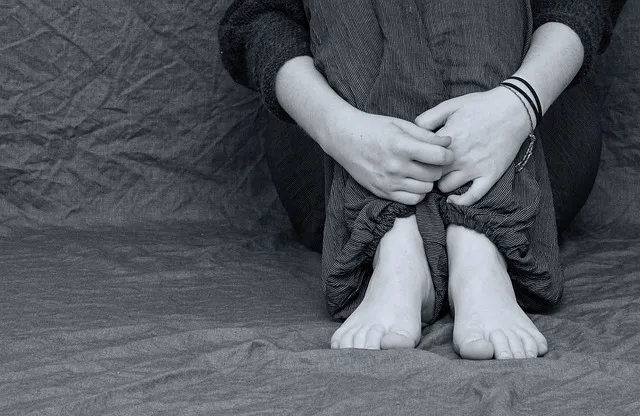
(pixabay.com)
ITA
"Chi ha mandato le rose, gongola per non essere stato scoperto, vuole restare nell'immaginario". Francesca tronca anche questo colloquio che non porta ad alcuna soluzione del mistero ed esce di casa. Ha bisogno di camminare e di allontanare dalla sua mente tutti i tristi pensieri. Oltrepassa il viale e si porta sullo spiazzo della villa dove c'è un bar e dove incontra un suo docente con cui conversa piacevolmente mentre insieme consumano una cioccolata calda. Decidono poi di portarsi nell'interno dove un gruppo di giovani si serve copiosamente del "fast food" pieno di panini colorati ed invitanti. Il buon profumo di caffè inebria il locale pieno anche di giochi frenetici e chiassosi per i più irrequieti. Dal "juke box" vengono fuori musiche assordanti, non in sintonia con quelle che ama ascoltare Francesca. Nella lingua, preferisce solo le canzoni francesi e non le aggressive novità di Bill Haley o di Elvis Presley. Si allontanano dal frastuono e si addentrano nel salone adiacente dove sta una mostra perenne di paesaggi ed autoritratti. Il luogo è deserto. I giovani preferiscono impegnare il tempo libero facendo i fracassoni e non perdersi nella contemplazione di ciò che può ricreare gli occhi e lo spirito. I pittori sono sconosciuti, ma le loro produzioni riportano il nostro tempo, con le sue lacerazioni, i suoi cambiamenti. Nei volti degli autoritratti, vi si legge la preoccupazione del futuro dell'uomo. I disegni sono essenziali, di un colore genuino che, nell'articolarsi ora di chiaro, ora di ambrato, li illumina di varie cromie, esprimendo il contrasto di ambienti diversi. Si è di fronte ad un mondo perduto, forse non recuperabile, pieno di nostalgia e di tristezza, difficile da vivere. Esso comunica un galoppante cambiamento non facile da accettare anche nel nostro modo di essere moderni. Il pomeriggio passato in compagnia, allontana da Francesca le ansie e cosi' torna a casa e dispone di occuparsi della prefazione di un libro di poesie di una conoscente che andava pubblicato al più presto. Il lavoro, ultimato, la fa sentire rilassata e piacevolmente soddisfatta. Smette i suoi impegni al suono del telefono che è tentata di lasciare squillare ma poi risponde.
ENG
"Who has sent the roses, gloats for not being discovered, wants to remain in the imagination". Francesca also truncates this conversation that does not lead to any solution of the mystery and leaves the house. He needs to walk and remove all his sad thoughts from his mind. It crosses the avenue and leads to the square of the villa where there is a bar and where he meets a teacher with whom he converses pleasantly while together they consume a hot chocolate. They then decide to take themselves inside where a group of young people copiously uses "fast food" full of colorful and inviting sandwiches. The good smell of coffee inebriates the place full of frantic and noisy games for the most restless. From the "juke box" come out deafening music, not in tune with those who love to listen to Francesca. In the language, he prefers only French songs and not the aggressive novelties of Bill Haley or Elvis Presley. They move away from the noise and go into the adjacent hall where there is a perennial exhibition of landscapes and self-portraits. The place is deserted. Young people prefer to engage free time by doing the fracassoni and not get lost in contemplation of what can recreate the eyes and the spirit. The painters are unknown, but their productions bring back our time, with its lacerations, its changes. In the faces of self-portraits, we read the concern of the future of man. The designs are essential, of a genuine color that, in the articulation now of light, now of amber, illuminates them of various colors, expressing the contrast of different environments. You are facing a lost world, perhaps not recoverable, full of nostalgia and sadness, hard to live. It communicates a galloping change not easy to accept even in our modern way of being. The afternoon spent in company, away from Francesca the anxieties and so 'back home and has to deal with the preface of a book of poetry of an acquaintance that was published as soon as possible. The work, completed, makes her feel relaxed and pleasantly satisfied. He stops his commitments to the sound of the phone that is tempted to let it ring but then responds.

(pixabay.com)
ITA
È la voce di Tony che le chiede notizie sulla sua salute. Non la sente da alcuni giorni e con la moglie si sono preoccupati. Francesca assicura di star bene ma di essere molto impegnata. A questo punto Tony dice di aver avuto delle notizie che lo hanno seriamente impensierito e che riguardano il comportamento di Greta che, dicono, frequenti cattive compagnie che la sera si vede nelle discoteche a ballare sui cubi. Francesca ferma bruscamente il dialogo affermando che la figlia ama solo la musica classica, non frequenta discoteche, non sa ballare. I suoi amici, e le famiglie cui appartengono, sono di sua conoscenza e che lui è solo un gran mestatore, un grosso bugiardo e non si deve più permettere di comunicare con lei, né per telefono, né di persona. Francesca ora, anche se è certa di avere sentito delle falsità, è piena di rabbia. Si sente venir meno e, abbattutissima,si siede sulla vicina poltrona con la testa tra le mani. Indignata, furibonda, sconcertata pensa di chiamare la figlia, ma poi vi rinuncia per non preoccuparla e si rivolge ad Irene a cui racconta per filo e per segno quanto le stava capitando, illustrando con i dovuti particolari, il contenuto della telefonata ricevuta. L'amica, che conosce Greta da quando è nata e i principi cui è stata educata, se ne esce con una solenne risata ed esclama: "Le sfrontate ed assurde affermazioni di un cosi' pover'uomo, di questo cialtrone, non ti devono preoccupare perché vengono da un vergognoso bugiardo. Non gli devi attribuire alcun credito. Dormi tranquilla, domani penseremo insieme come intervenire per smorzare i suoi bollenti spiriti". Francesca trascorre una notte da incubo: lei,che non sogna quasi mai, si sveglia di soprassalto ora perché sta per precipitare in un burrone, ora perché inseguita da figure losche e spaventose, inciampa e cade mentre nessuno le porge aiuto e non è in grado di correre, di scappare. Si sveglia madida di sudore ma continua a restare nel letto, non ha voglia di muoversi. Si rende conto, che la casa pur essendo luogo di stallo esistenziale, in cui tutto è immobile, uguale a se stesso in contrasto col divenire dello scorrere del tempo, è anche uno spazio che ti fa sentire sicura da ogni tempesta.
ENG
It is Tony's voice that asks her about her health. He has not heard from her for a few days and they worried with his wife. Francesca assures her to be well but to be very busy. At this point Tony says he has had some news that seriously worried him and concerning Greta's behavior, which, they say, frequent bad company that in the evening is seen in the discos to dance on the cubes. Francesca abruptly stops the dialogue by saying that her daughter loves only classical music, she does not go to clubs, she does not know how to dance. His friends, and the families to which they belong, are of his knowledge and that he is only a great sorcerer, a great liar and must no longer be allowed to communicate with her, either by telephone or in person. Francesca now, even if she is sure she has heard falsehoods, is full of anger. He feels faint and, very downcast, sits in the nearby chair with his head in his hands. Outraged, furious, bewildered, she thinks of calling her daughter, but then she renounces it so as not to worry about it and she turns to Irene, telling him what she was doing, illustrating with all due details the contents of the phone call received. The friend, who has known Greta since she was born and the princes she was educated, comes out with a solemn laugh and exclaims: "The shameless and absurd statements of such a poor man, this scoundrel, you do not have to worry because they come from a shameful liar, you do not have to give him any credit ... Sleep calm, tomorrow we'll think together how to intervene to dampen his hot spirits ". Francesca spends a nightmare night: she, who almost never dreams, wakes up with a start now because she is about to fall into a ravine, now because chased by shady and scary figures, stumbles and falls while nobody offers her help and she is not able to run, to run away. He wakes up soaked with perspiration but continues to stay in bed, does not want to move. He realizes that the house, despite being a place of existential deadlock, in which everything is still, equal to itself in contrast with the passing of time, is also a space that makes you feel safe from any storm.

(pixabay.com)
ITA
Tutto il suo essere ora aspira ad un provvidenziale oblomovismo, per sfuggire a tutte le preoccupazioni, e neutralizzare quei momenti di panico che la portano a fare poco uso della sua ragione. Nel passato salutava felice il sorgere del giorno per intraprendere le varie attività e poi, anche se stanca, si sentiva sempre viva e soddisfatta. Ora non intende muoversi. ma frugare nell'intrigo del suo raziocinio, studiando atteggiamenti atti a risolvere i suoi problemi. Ma ha l'impressione di non trovare niente per acquietare il suo spirito. Incomincia a parlare da sola, ad alta voce e scopre di vivere non per sé, ma per Greta. Si augura che nei dialoghi con la figlia, non esploda la disperazione, ma l'accettazione di quanto si sta verificando, essendo quest'ultima una parentesi della vita stessa. Intanto pensa a Tony che ha avuto la tracotanza di ferire gravemente la figlia, con accuse crudeli, malevoli, infamanti. Esse avranno il potere di annientarla, di smorzare ogni suo entusiasmo per la vita, di farle perdere la fiducia in se stessa.
ENG
All her being now aspires to a providential oblomovism, to escape all worries, and to neutralize those moments of panic that lead her to make little use of her reason. In the past he happily greeted the rise of the day to undertake the various activities and then, even if tired, he always felt alive and satisfied. Now he does not intend to move. but rummage in the intrigue of his reasoning, studying attitudes to solve his problems. But he has the impression of finding nothing to calm his spirit. She begins to speak alone, out loud and discovers she does not live for herself, but for Greta. He hopes that in the dialogues with his daughter, despair does not explode, but the acceptance of what is happening, being the latter a parenthesis of life itself. Meanwhile, think of Tony who had the arrogance of seriously injuring his daughter, with cruel, malicious, infamous accusations. They will have the power to annihilate her, to dampen her every enthusiasm for life, to make her lose faith in herself.